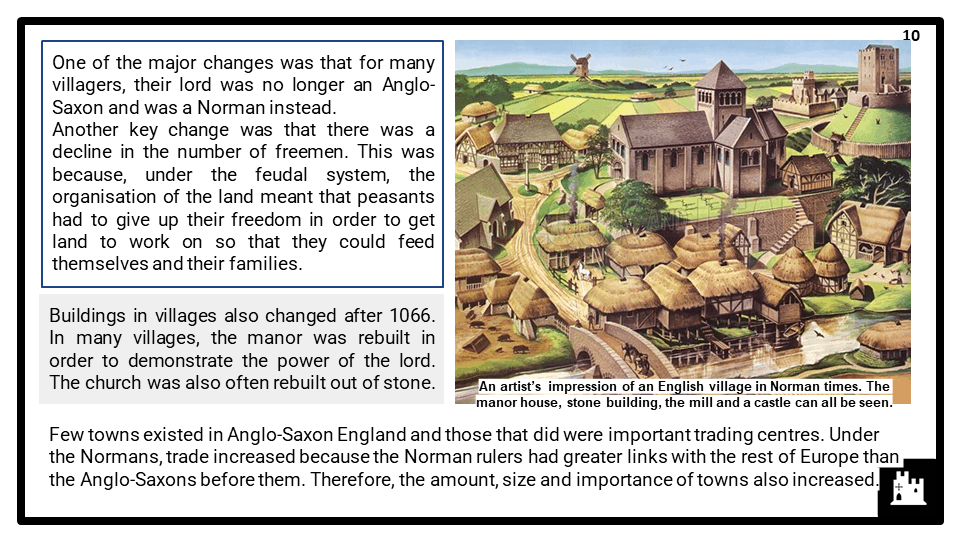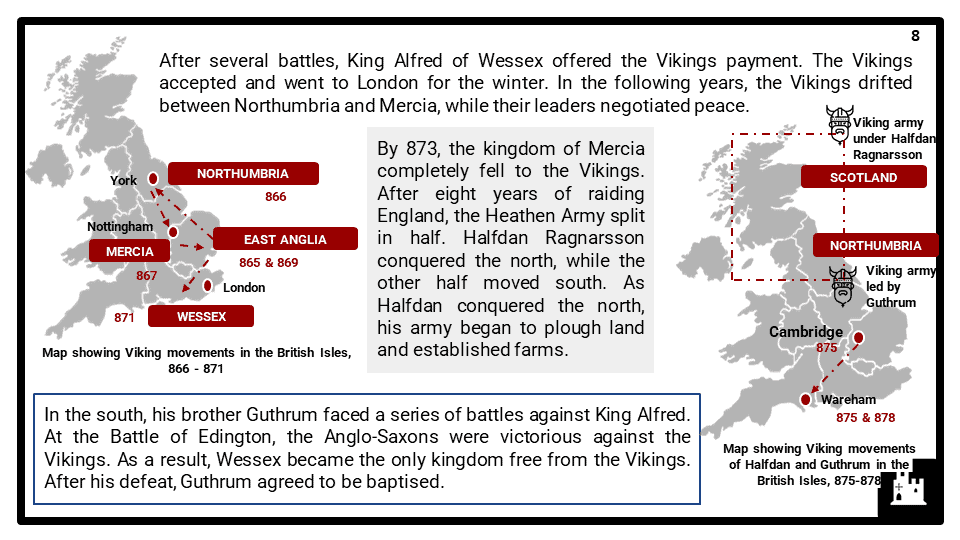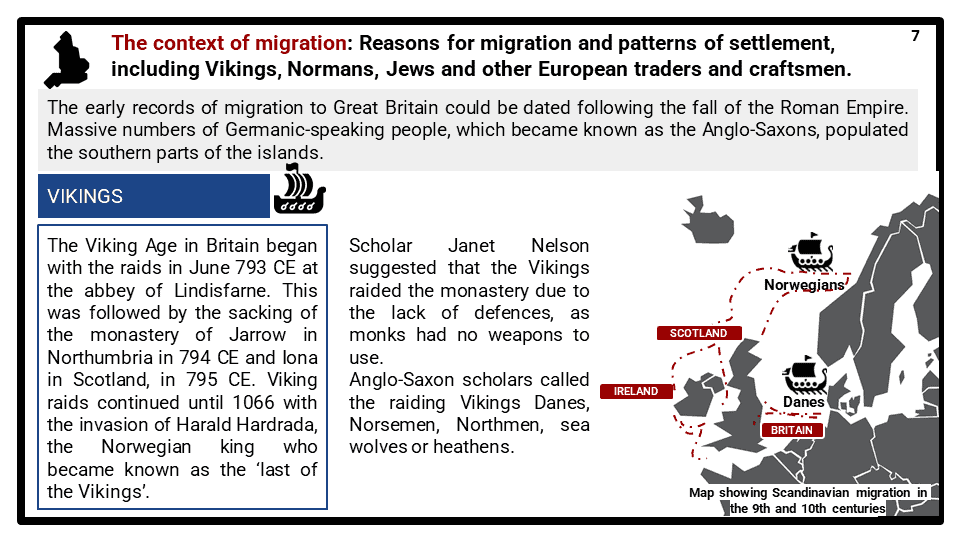Teach any Edexcel module 13: Migrants in Britain, c800-present, no prep needed!
Do you want to save dozens of hours in time? Get your evenings and weekends back? Be fully prepared to teach any Edexcel GCSE topic 13?
Every Edexcel topic 13 is covered, and each module comes complete with:
Migrants in Britain, c800–present
In studying the content defined below, students should understand gain understanding of how key features in the migration to and within Britain were linked with the key features of society in Britain in the periods studied which drew migrants to Britain. It will be important for students to understand that ‘migrant’ can encompass both voluntary and forced migration, temporary migrants and internal migrants. In covering reasons for migration, the primary focus of teaching should be on what drew migrants to Britain (‘pull’ factors), although students should have some awareness of why migrants left their countries of origin (‘push’ factors). This module consists of the following parts:
- c800–c1500: Migration in medieval England
-
-
- The context for migration
- The experience and impact of migrants
- Case study: the city of York under the Vikings
-
- c1500–c1700: Migration in early modern England
-
-
- The context for migration
- The experience and impact of migrants
- Case study: Sandwich and Canterbury in the 16th century, and Huguenots in 17th-century England
-
- c1700–c1900: Migration in eighteenth- and nineteenth-century Britain
-
-
- The context for migration
- The experience and impact of migrants
- Case study: Liverpool in the 19th century, and the experience of Jewish migrants in the East End of London in late nineteenth century
-
- c1900–present: Migration in modern Britain
-
-
- The context for migration
- The experience and impact of migrants
- Case study: Bristol in the mid-twentieth century, and the experience of Asian migrants in Leicester from 1945
-
- Historic Environment: Notting Hill, c1948–c1970
-
- The local context of Notting Hill. The reasons for Caribbean migration to the area. The problems of housing: houses of multiple occupation (HMOs), overcrowding and slum landlords, e.g. Peter Rachman. Bruce Kenrick and the Notting Hill Housing Trust. The development of Portobello Road market.
- The influence of Caribbean cultures on the area, in particular the development of shops, markets, cafes and restaurants, shebeens, nightclubs and entertainment which featured Caribbean food and music. The development of All Saints Road. Mutual self-help organisations, e.g. ‘pardner’ schemes.
- Racism and policing. The Notting Hill Riots (1958). The murder of Kelso Cochrane and the reaction of the local community. The impact of anti-immigrant groups, including Oswald Mosley’s Union Movement and his 1959 election campaign.
- Black activism in the Notting Hill area. Claudia Jones and the West Indian Gazette. The 1959 Caribbean Carnival and the later development of the Notting Hill Carnival. Frank Crichlow and the Mangrove Restaurant. The British Black Panthers. The ‘Mangrove Nine’.
- The national and regional context: Britain after the Second World War, reconstruction and demand for labour; the connection to the British Empire and Commonwealth. The ‘Swinging Sixties’. Poverty in London. Policing in London. Knowledge of local sources relevant to the period and issue, e.g. local newspapers, publications written for the Caribbean community, local council and police records, housing and employment records, oral and written memoirs of local residents, photographs.
- Knowledge of national sources relevant to the period and issue, e.g. national newspapers, photographs, government records, census data, opinion polls, television reports, memoirs.
- Recognition of the strengths and weaknesses of different types of source for specific enquiries.
- Framing of questions relevant to the pursuit of a specific enquiry.
- Selection of appropriate sources for specific investigations.




